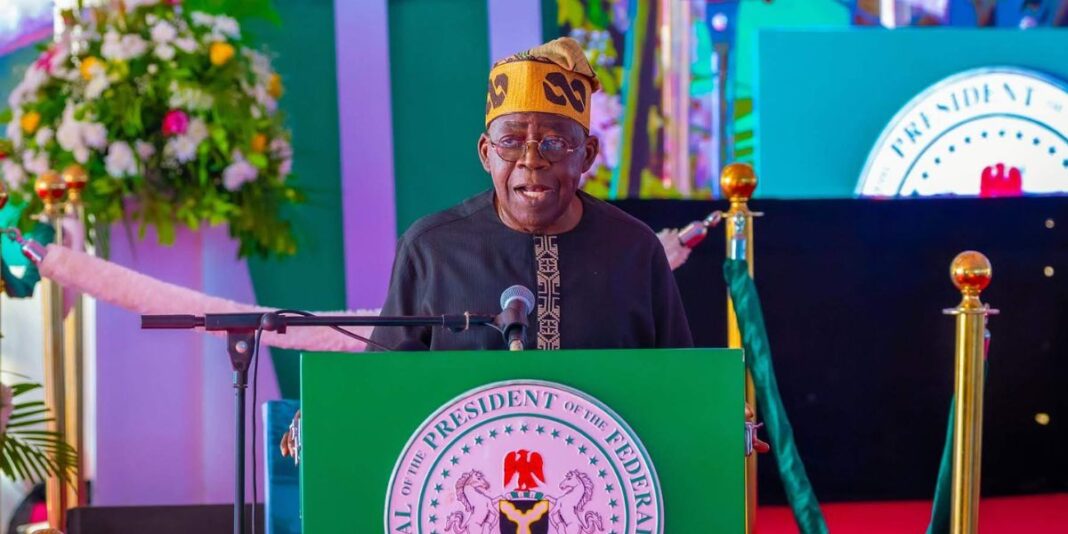President Bola Ahmed Tinubu, on Monday, publicly acknowledged a former classmate and neighbour from his days at Chicago State University during the launch of the Renewed Hope Agricultural Mechanisation Programme in Abuja.

Speaking at the event, Tinubu introduced a Belarusian businessman, Alex Sigman, as his friend and university mate from Chicago. He praised Sigman as a symbol of international friendship and economic cooperation.
“To all of you, Alex was my very good neighbour and classmate in Chicago,” the president stated. “My dear friend, the story must be told clearly. When we were together at Chicago State University, neither of us could have predicted that I would become President of the Federal Republic of Nigeria or that Alex would become a successful businessman capable of promoting bilateral relations for shared prosperity.”

He added, “Thank you, Alex. I believe our university will be proud of us today.”
Tinubu also commended the Ministry of Agriculture and Food Security for its efforts in tackling the nation’s food crisis. “I sincerely commend the ministry for its proactive measures in addressing food insecurity and ensuring stability in our food system,” he said.
This public recognition of a university associate comes amid ongoing controversies surrounding Tinubu’s academic history. His claims of attending Chicago State University have been the subject of intense legal and political scrutiny, especially during the 2023 presidential election cycle. Opposition leader Atiku Abubakar of the Peoples Democratic Party had sought legal access to Tinubu’s academic records, arguing that documents from the university appeared inconsistent. Notably, one record indicated that a female named Bola Tinubu, born on March 29, 1954, had been admitted during the 1970s.

In response, Tinubu moved to block the release of his academic records by a U.S. federal court. Despite these efforts, the Nigerian Supreme Court eventually dismissed new evidence related to the forgery allegations and upheld Tinubu’s victory at the polls. While the Supreme Court’s ruling legally settled the matter, the controversy continues to stir public debate in Nigeria.





